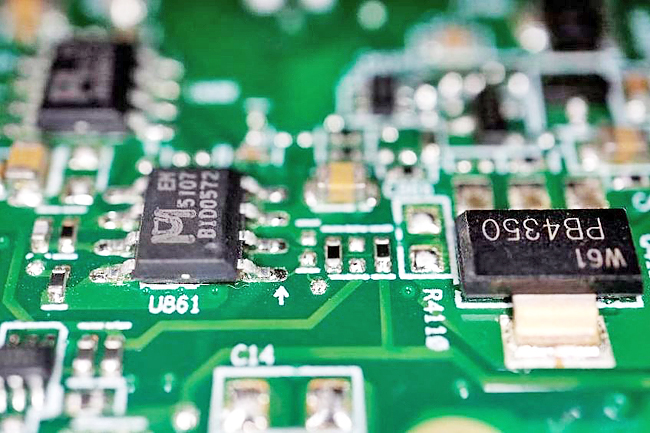ANN/THE STRAITS TIMES – Investors in South Korea are betting on improving earnings and a recovery in global semiconductor sales to drive stock gains, as they focus on long-term catalysts rather than November’s surprise short-selling ban.
Global funds have started buying the nation’s equities again after three months of net sales, while South Korean exports rose in October for the first time in 2023.
The market’s decline over the August-October period provides a good entry point given chip earnings are likely to rise, according to Invesco Asset Management.
Bloomberg Intelligence said demand for semiconductors and other tech hardware will reach an inflection point in 2024.
“There are quite a few reasons why investors may want to be overweight Korean equities heading into 2024,” said strategist for Asia-Pacific ex-Japan at Invesco in Singapore David Chao.
“Improving semiconductor fundamentals driven by an export and earnings recovery should provide a boost,” he said, adding that he also likes other exporters such as information technology hardware, auto parts and industrials that could benefit in the second half of 2024 when the global economy is expected to fare better.

Volatility spiked last week as South Korea’s regulator on November 5 announced a full ban on short selling until the end of June 2024.
The move followed repeated complaints by the legions of local retail investors against the practice of selling borrowed shares, and came just months before general elections for the National Assembly in April.
While the decision sent stocks soaring the next day amid a bout of short-covering, it spurred concerns about South Korea’s appeal for global hedge funds and banks that regularly deploy short trades in the USD1.7 trillion market. The move is also seen complicating the nation’s bid to seek a developed-market status in MSCI’s indexes.
Still, to some observers, the prohibition is unlikely to alter longer-term expectations for the country’s equities, especially as short selling accounts for a tiny portion of the market – about 0.6 per cent of the benchmark Kospi Index’s value, according to exchange data.
“For investors who are attracted to South Korea because of either the broader economic fundamentals or the fundamentals of specific stocks, I don’t think it’s going to be a major factor,” said chief executive at MarketVector in New York Steven Schoenfeld.
“On the margin, it will be a small negative.”
Overseas investors have bought some USD1.6 billion of Korean stocks in November. They offloaded a combined USD4.8 billion over the previous three months.






